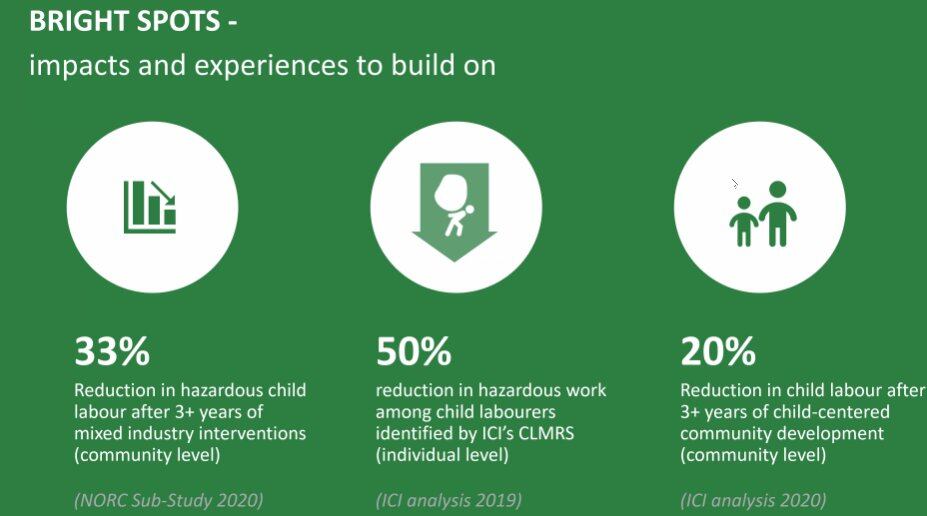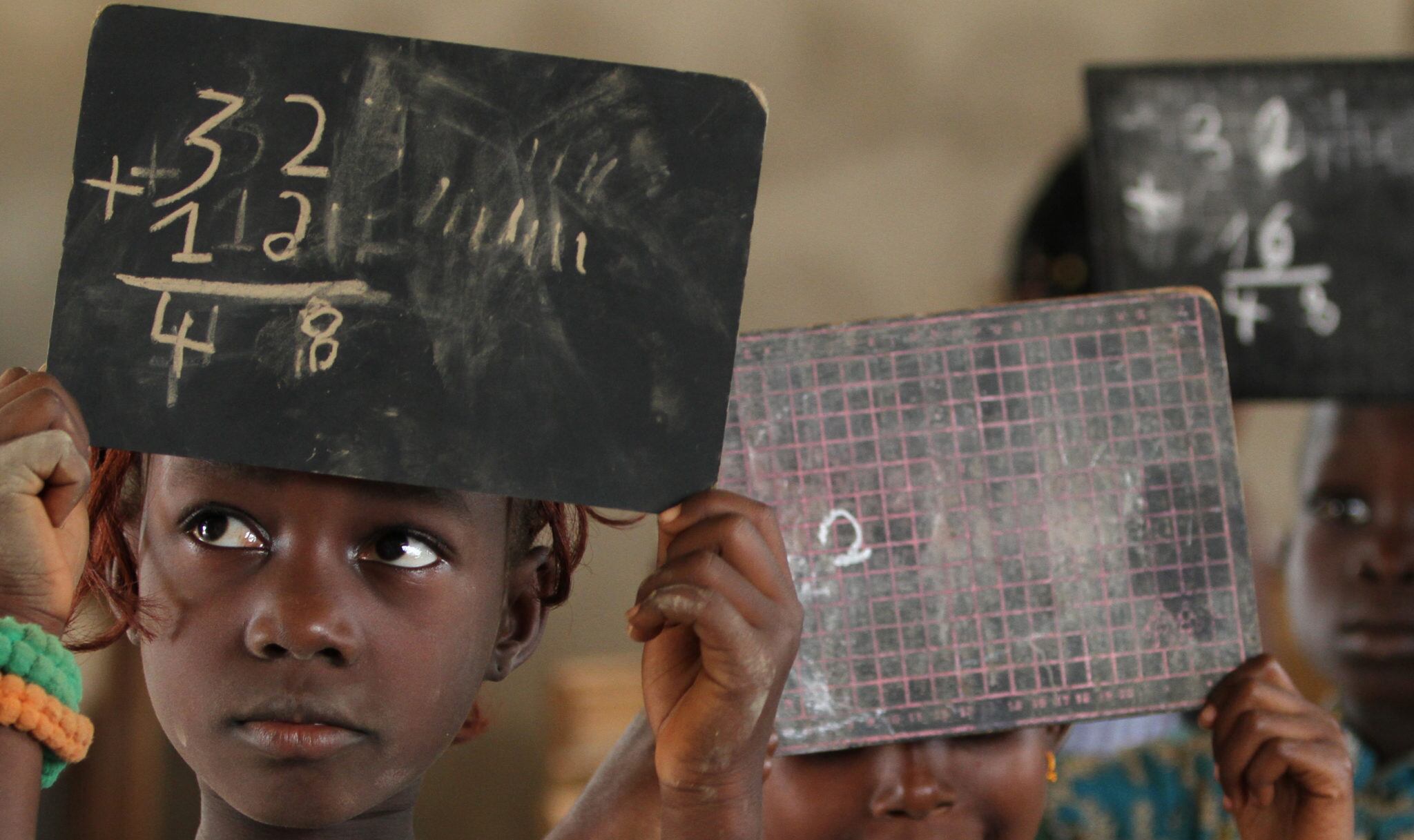The issue of COVID-19 and other shocks such as the recent NORC report on child labour in the cocoa sector has pushed the issue up the World Cocoa Foundation (WCF) Partnership Meeting's agenda this year, which is being held online.
If any more motivation was needed from the sector on tackling child labour, then delegates were reminded by Nick Weatherill, International Cocoa Initiative (ICI) Executive Director, that 2021 has been designated the international year for elimination of child labour.
Weatherill had the somewhat unenviable task of looking for the positives after the NORC report revealed there was still a large number of children (1.56m, according to NORC) being forced into hazardous labour in Cote d’Ivoire and Ghana, the vast majority on family farms.
But, he told the Meeting the latest research was "encouraging" – despite the daunting figures.
Child Labour Monitoring and Remediation Systems (CLMRS), like the one implemented by the ICI, are having an impact in identifying and remediating cases of child labour.
The ICI system is based on the presence of facilitators within cocoa-growing communities who raise awareness on the issue of child labour, identify cases and request remediation actions that are implemented by ICI together with the chocolate company and cocoa supplier.
He said 88-96% of child labourers are attending school – and 94% of child labourers live with their relatives or parents.
But the big problem with child labour in cocoa is the prevalence of hazardous work – using sharp tools, carrying heavy loads and exposure to agrochemicals.

The ‘bright spots’ he told the meeting are in remediation systems, like ICI’s, and in communities that have had interventions. In past three years in Cote d’Ivoire and Ghana, there has been a reduction of 33% in terms of children involved in hazardous work – in global agricultural there has been a 16% reduction, he said.
With CLMRS accelerating the average rate of progress, almost five times faster than in other areas of agriculture, then why is it still an issue?
“It’s pretty simple,” said Weatherill, “these efforts that we have seen that have impact are still not being implemented at anything like the scale that we need. CLMRS are only reaching about 20% of cocoa farmers – so good impact but not enough scale – this is the challenge we now have as a sector in West Africa.”
What’s to be done?
Weatherill said the ICI has adopted a new strategy to run until 2026, focussing on trying to analyse what is blocking the scaling journey – while looking at the main drivers.
He said more research and knowledge into what works and more innovation, marshalled through a collective learning process, a level-playing field, cost effectiveness and above all, transparency, are required in order to get a grip of the problem.
As with the WCF, the ICI welcomes regulatory developments from EU and US lawmakers on mandatory HR due diligence but more importantly, he reminded companies “there is a reputational dividend to be had from doing the right thing.
“We have to move from an orientation that focuses on implementing projects to actually having sustainable systems that work together to move things to scale”.
He sees “a powerful nexus between national systems, community systems and supply chain systems” as one way forward on achieving positive outcomes.
Public Private Partnership
Weatherill said the ICI has been building a new Public Private Partnership with the governments of Cote d’Ivoire and Ghana to accelerate progress on a multi-stakeholder basis. The plan has been in the process for 18 months but the different parties are “emerging with a sense of priorities and needs, and a structure …
“If we succeed, we hope we will have greater alignments, motivation, higher levels of resourcing and a much more accountable approach to tackle the problem and push for scale that is absolutely necessary – and possible,” he told online delegates.
Weatherill was speaking in the Fighting Child Labor in Cocoa: Building Partnerships & Scaling Up Action session, which also included contributions from: Kate Clancy, Cargill, Senior Sustainability Manager; Oi Camille Abou, Camaye Cooperative, Côte d'Ivoire President; Jeff King, The Hershey Company Sr. Director Global Sustainability & Social Impact; Francesco d'Ovidio, International Labour Organization Head, Solutions and Innovation Unit; and WCF’s host Buddy Buruku.
Clancy told the WCF that child labour can't be addressed solely through CLMRS. "Sector actors need to reflect on their unique roles to bring added value," she said - and claimed more support for cocoa consuming countries is needed. She also said the industry needs to advocate for more capacity on child labour despite the progress.
d'Ovidio said the issue of child labour not only concerns cocoa and that we need to take an area/landscape approach … farmers need better salaries through contracts, he added.
Hershey’s Jeff King supported the plan to scale up efforts, saying we know we have systems that work against cocoa child labour.
Oi Camille Abou from the Camaye Cooperative said the most important element not taken in to account in preventing cocoa child labour is the empowerment of women – “they are closest to the children”.



